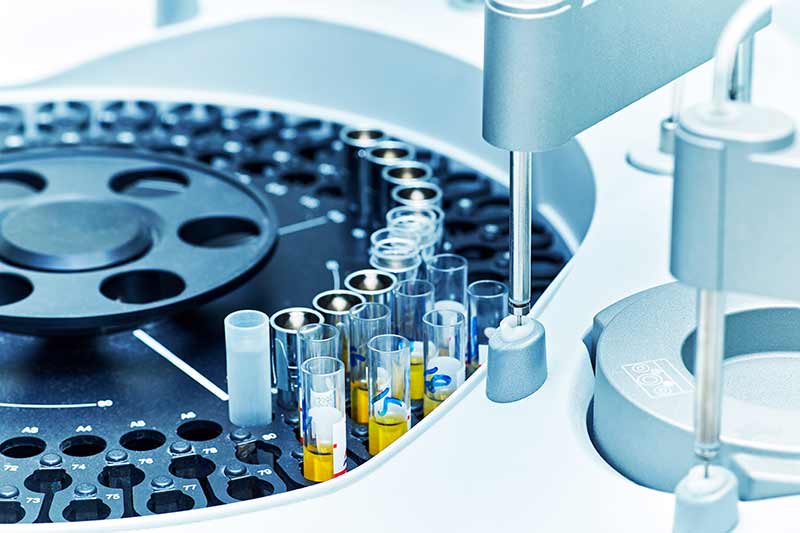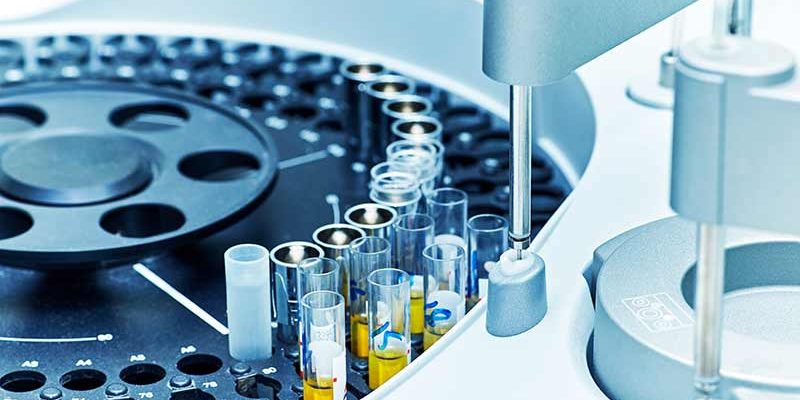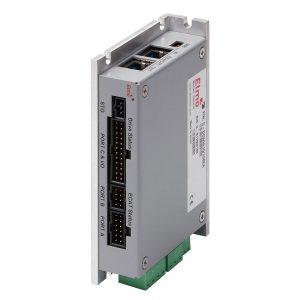Testing on an unprecedented scale is key to controlling the Covid-19 pandemic. Easier said than done— to meet the demand, labs that previously handled thousands of samples must now process millions. To do so, labs need automation that enables a refrigerator module to store large quantities in a confined space with accurate, high-speed access.
Read this case study to learn about:
- Servo drives that are small enough to fit side-by-side in the electrical cabinet and yet provide high power
- How using low-voltage, low-EMI servo drives eliminates the need for external EMI filters and reduces electrical cabinet size
- Lowering costs by reducing the number of components and energy consumption
- Minimizing machine weight and enabling easy transportation with compact drives
- Enabling smooth and sustainable operation of machines exposed to harsh conditions during shipping and reassembly

Machine requirements
A top-tier laboratory instrumentation manufacturer wanted to scale up Covid-19 test production using a fully automated test system. The refrigerator design was already specified when the manufacturer contacted Elmo, including the size of the external electrical cabinet that housed the controllers and drives. This presented several challenges. Although individual samples are small, they are moved in multi-tube cassettes that can weigh 2-3kg. The motors needed high-power drives to provide enough torque to control the cassettes while moving at high accelerations. Some drives on the market could offer this level of performance, but a limited few were small enough to allow six drives to fit side-by-side in the electrical cabinet. Some required external, EMI-suppressing filters that would take up even more space.
Weight was another major consideration. The refrigerators were built on the manufacturer’s factory floor, then disassembled and shipped to their final destinations for reassembly. The electrical cabinet was designed to be light enough to be lifted by a single person without injury, and the weight requirement ruled out another drive vendor.
The operating conditions in the refrigerator units presented another unique challenge. The interiors of the refrigerator units are maintained at 3-5°C. Although the electronics were kept in the external cabinet, the motors were not. When the units were shipped and reassembled, they were exposed to cooler ambient temperatures, subjugating the motors to different forces and creating occasional motion problems.
Motion control solution
- Gold DC Whistle drives
The team chose Gold DC Whistle drives for this application because they provide up to up to 20 A/100 V of output and weigh just 267g. Gold Whistle drives are also low-voltage, producing negligible EMI. No extra EMI filters are needed for the electrical cabinet; Fewer components mean smaller volume, less weight, and lower costs.
Intermittent faults, like those caused during transport and reassembly, can be very difficult to track and locate. Elmo’s EAS software was used to troubleshoot the anomalies. EAS recorded the data and the service technician used the data to discover the root cause and re-tune the drives to compensate for the temperature issues. “The data recording played a vital role in detecting and curing the problem,” Laurent Muller, an Elmo application engineer, says. “Without the information provided by our EAS system, overcoming this problem would not have been possible.”
Gold DC Whistle
Miniature Servo Drive
1-20A/100VDC, 3-9A/200VDC
Results
Refrigerated storage modules powered by Elmo drives have now been deployed around the world. The manufacturer has already selected advanced Elmo drives with functional safety capabilities to complement its next-generation test platform. The systems are running around the clock to identify new Covid-19 carriers so that they can be isolated before they spread the disease further.
“We are honored that our drives are a part of this essential project,” says Haim Monhait, CEO of Elmo. “We are happy to serve our customers, but we are most proud that we are able to help mankind fight the Coronavirus.”


